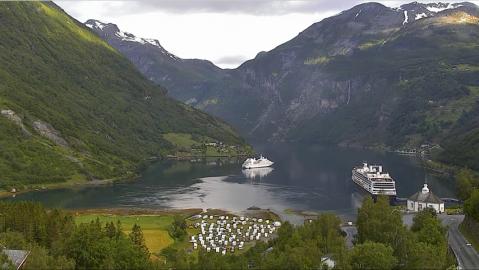As COVID-19 continues to ravage international trade and heap pressure onto political relations, it is important to begin to understand what the pandemic has set in motion in the short-term (plummeting US oil prices and sharp reductions for other crudes) and what will be the consequences in the next semester in terms of geopolitical and geoeconomic terms. To build a well-rounded understanding of the COVID-oil relationship, five actors or regional settings must be accounted for: the USA, Russia, China, the Arab Gulf and the EU, since these represent an important mixture of key producing and consuming states.
The current tensions within and among different actors are evidently a concern for NATO in its role of political-military alliance in the Euro-Atlantic region and the only effective trans-regional security provider, that includes openly energy security of supply in its priority list.
A sample of a wider range of questions under scrutiny may include:
1. What caused the so-called ‘oil price war’ and what are its remedies?
2. Are there clear international changes being spawned from such oil fluctuations and the outbreak of COVID-19?
3. Energy alliances are being redefined, but in what ways?
4. What is the current relationship between producing and consuming states and how is the pandemic and its likely severe recession impacting it?
Speakers
Anas F. Alhajji—Energy Markets Expert, Researcher, Author, Speaker, Contributing Editor for World Oil, previously Managing Partner at Energy Outlook Advisors LLC and Chief Economist of NGP Energy Capital Management
Demostenes Floros—Senior Energy Economist, CER-Centro Europa Ricerche, collaborates with WE-World Energy edited by ENI and the Geopolitical magazine LIMES, Contract Professor of the Master "Italy-Russia International Relations", University of Bologna
Nicolas Mazzucchi—Research Fellow in charge of cyber, energy and primary goods issues, Fondation pour la Recherche Stratégique (FRS), formerly in charge of energy analysis at the French Ministry of the Armed Forces
The event was moderated by Alessandro Politi—Director, NATO Defense College Foundation.As COVID-19 continues to ravage international trade and heap pressure onto political relations, it is important to begin to understand what the pandemic has set in motion in the short-term (plummeting US oil prices and sharp reductions for other crudes) and what will be the consequences in the next semester in terms of geopolitical and geoeconomic terms. To build a well-rounded understanding of the COVID-oil relationship, five actors or regional settings must be accounted for: the USA, Russia, China, the Arab Gulf and the EU, since these represent an important mixture of key producing and consuming states.
The current tensions within and among different actors are evidently a concern for NATO in its role of political-military alliance in the Euro-Atlantic region and the only effective trans-regional security provider, that includes openly energy security of supply in its priority list.
A sample of a wider range of questions under scrutiny may include:
1. What caused the so-called ‘oil price war’ and what are its remedies?
2. Are there clear international changes being spawned from such oil fluctuations and the outbreak of COVID-19?
3. Energy alliances are being redefined, but in what ways?
4. What is the current relationship between producing and consuming states and how is the pandemic and its likely severe recession impacting it?
Speakers
Anas F. Alhajji—Energy Markets Expert, Researcher, Author, Speaker, Contributing Editor for World Oil, previously Managing Partner at Energy Outlook Advisors LLC and Chief Economist of NGP Energy Capital Management
Demostenes Floros—Senior Energy Economist, CER-Centro Europa Ricerche, collaborates with WE-World Energy edited by ENI and the Geopolitical magazine LIMES, Contract Professor of the Master "Italy-Russia International Relations", University of Bologna
Nicolas Mazzucchi—Research Fellow in charge of cyber, energy and primary goods issues, Fondation pour la Recherche Stratégique (FRS), formerly in charge of energy analysis at the French Ministry of the Armed Forces
The event was moderated by Alessandro Politi—Director, NATO Defense College Foundation.As COVID-19 continues to ravage international trade and heap pressure onto political relations, it is important to begin to understand what the pandemic has set in motion in the short-term (plummeting US oil prices and sharp reductions for other crudes) and what will be the consequences in the next semester in terms of geopolitical and geoeconomic terms. To build a well-rounded understanding of the COVID-oil relationship, five actors or regional settings must be accounted for: the USA, Russia, China, the Arab Gulf and the EU, since these represent an important mixture of key producing and consuming states.
- Category
- ATLANTIC ROAD
Commenting disabled.














